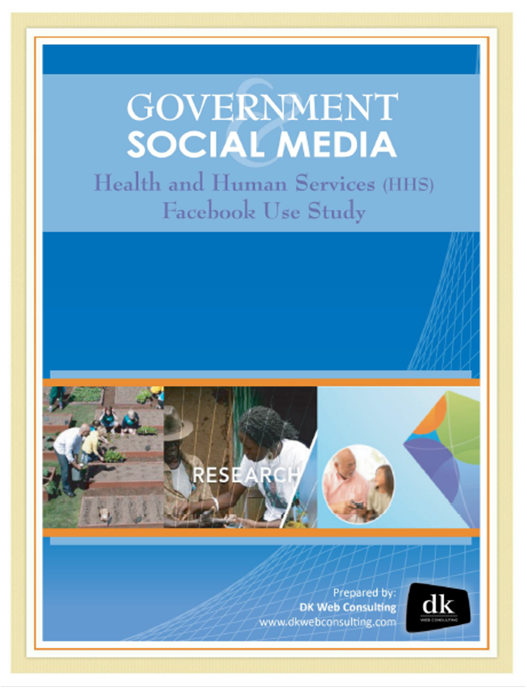
This edition of the Health Care Social Media (HCSM) Review explores recent discussions and research on how social media collides with health promotion, prevention and wellness efforts. While a number of submissions highlighted social media, many spoke more to digital health as a whole vs. social media specifically, an important differentiation. So, let’s explore that first.
Digital Health Takes Center Stage
In health care social media discussions, lines quickly blur as people share and develop ideas that relate to possible close cousins of social media including big data, wearable tech or mobile technology. Refer to this article by Healthy Startups on the 100 Trends That Will Change Healthcare in 2013 for a full list of potential relatives.
Or, people start considering “social media” implementation and evaluation strategies when they actually want to look more broadly at a program’s full digital strategy and communication activities. Now, we have Forbes declaring 2013: The Year of Digital Health and our Ogilvy colleagues chiming in on the discussion.
With the close of the Digital Health Summit at the Consumer Electronics Show in Vegas earlier this month and next month’s Digital Health Extravanganza, the conversation isn’t slowing down anytime soon. The fast-growing 14,000+ member Digital Health LinkedIn group provides further evidence.
(…but What Is It?)
Social media and all its relatives – is that digital health? Yes. Some groups have put together more scholarly definitions:
- Digitome: Digital Health is the use of technologies and networks by all stakeholders (doctors, patients, scientists, payers and providers) to enhance collaboration and personalisation, and to reduce the cost of healthcare. Digital Health is an umbrella term which incorporates overlapping technologies and approaches including Health 2.0, Connected Health, eHealth, telehealth and mHealth.
- Rock Health SXSW #DigiHealth Panel, (2012): Digital health is an emerging industry at the intersection of technology and health, radically changing how we access and use personal health information. It unites smartphones/tablets (new means of 24/7 access to information), with big data in the cloud (enabling personalization), game dynamics / mechanics (new engagement mechanisms), the increased engagement of physicians online (interactive doctors), and a vibrant social conversation about health. The panel, composed of pioneers in this new space (WIRED Magazine, HealthTap, Rock Health, Massive Health, CakeHealth, others), will explore why Digital Health is happening now, and how it is poised to forever transform how we access and use personal health information, how we manage our personal health, and how we interact with physicians using online/mobile applications.
- World Economic Forum: Digital health harnesses the transformational power of modern information and communication technologies for improving health and healthcare throughout the world. Information is the lifeblood of health and healthcare. In caring for individual patients, managing healthcare systems, controlling and preventing NCDs or other epidemic illness, or conducting cutting-edge clinical research, we are only as good as the information we have about the health and healthcare of individuals and populations. Digital health releases the power of health-related data by applying the most advanced information and communication technologies to the collection, sharing and use of information that can improve health and healthcare.
While discussions are still underway, here’s the take away: Digital health encompasses social media – but it’s so much more! For your behavior change interventions, social media programs and communication efforts, focusing solely on social media limits your impact. Introduce yourself to digital health.
Hot Topics
So, back to our submissions – here are the stand outs, though some feature social media’s cousins and close relatives:
- Given the latest buzz on gun control and violence, many may find this recently published fact sheet on how to use social media for crime prevention from the International of Chiefs of Police interesting. The U.S. Institute of Peace also shared a variety of initiatives on how social media is being used for conflict prevention abroad.
- The American Heart Association released a scientific statement saying that social media may help fight childhood obesity.
- Amelia Burke reminds us of the allure of social media and its relevancy to health in her post Social Media: The Oryx of the New Communication Era. While she didn’t officially submit it, Burke also shares how social media can liven up flu messages. Given the current state of the flu in the United States, you may also be interested in Michael Sherman’s post highlighting how “Social Media Now Tracks Flu Faster than the CDC“.
- While not social media, Sherman also reminds us that email is alive and well in healthcare marketing. I couldn’t agree more. I recently shared a number of email health interventions that have seen success.
- You’ve heard of Text4Baby, but an Illinois Department of Health initiative called Text2Survive is using mobile messaging to enhance minority youth access to HIV/AIDS information and prevention. An HHS Text4Tots initiative is also in works focusing on nutrition and physical activity. Meanwhile, a separate Text4Tots program was piloted to promote oral health.
- This study looks at the potential of using Facebook and Facebook groups to promote safe driving.
- The number one source of health information for most people is still the doctor. Given this, Kate Berry’s post outlining the Patient Engagement Framework and its five phases is worth noting.
Thank you for all of your contributions to this edition. Health Care Social Media Review has information about the next edition’s host and instructions on how to submit your posts for review in future editions.
]]>
Source: DK Web Consulting
Twice as many fans engage on Military Facebook pages than pages from the U.S. Department of Health and Human Services (HHS) according to new reports from DK Web Consulting. Surprised? Let’s explore.
Key Findings
To benchmark government Facebook use, DK Web Consulting looked at 16 Military and 66 HHS agency Facebook pages to provide insight on how social media efforts compare across government.
Military Agencies:
- Military pages average between 3 to 4 posts per day (3.9), roughly 19 posts per week including weekends when 92.9% of pages posted content.
- The most commonly used content among all military agencies is photos. The U.S. Air Force often posts photos and asks fans to caption the image, a strategy that has proved successful. A recent photo-caption post generated as much as 120 shares, 1,480 “likes” and 2,602 comments.
- Nearly 4% of fans are “Talking About” each military page, the highest rate among all government segments, and twice as high as the average for HHS pages.
Health Agencies:
- Content creation varies as 16 of the 66 pages (24%) did not have a single post during the 7 day evaluation time frame. Of the other 50 pages that did post during that 7 day period, the quantity ranged between 1 and 15 posts per week, with 0.7 posts per day being the average. The percentage of posts-per-day drops significantly on the weekends, as only 6% of HHS pages published content on either Saturday or Sunday.
- 26 of the 66 (39%) HHS agencies don’t allow fans to post on their Facebook walls.
- The average HHS page post receives 24 engagements (likes, comments, or shares).
- The average number of custom tabs used among all 66 pages was 3.4, ranging from 0 to 11. The most commonly used Facebook tab was one for videos.
What This Means for You
Automated vs. Manual Updates
In both the military and the health pages, the third-party tool most used to manage the page was Hootsuite. Military pages were also more likely to use a third-party tool than health pages and military pages tend to have more fans and overall engagement. Coincidence? Maybe/Maybe not.
Before you register for Hootsuite know this: Hubspot and others have found that the use of third-party tools can actually make your posts have a lower Edgerank in Facebook, meaning less people see them. Pages using Hootsuite probably showed stronger in the benchmarking study due to having a savvier, more informed and collaborative team working on the effort–not necessarily due to the use of Hootsuite itself. Success is due to thinking beyond the tool.
Talking About This vs. Engagement Per Post
The study found that military pages had twice the number of people engaged in their overall page. However, it also found that health pages had more engagement per post. So which metric do you measure? Both (if resources allow since one is automatically reported by Facebook and the other collected manually).
What matters–is that you algin both metrics to the right goals and objectives. For example, with healthfinder.gov’s Facebook page, we looked at “talking about this” as an overall engagement metric. For us, we tended to have 7% of fans talking about the page which is five percentage points higher than the average HHS Facebook page (1.9%) which extended the exposure and influence of our messages. We also looked at engagement per post because sometimes it correlated directly to participation in healthfinder.gov’s weekly health challenge. The challenge with its individual posts helped us gauge attitudes, knowledge and intentions around certain preventive health behaviors. Engagement per post would also matter if you posed a poll and wanted to gauge responses, asked fans a particular question, used promoted posts or want to illicit a specific action. As your college professor would say, “it depends.”
During the Week vs. Weekend Posts
The Military pages had more engagement overall and more of their pages posted on the weekends. While bitly advises not to post on Facebook during the weekend, there could be a correlation to explore here (as peak times for posting on social media often conflict by source).
Resources
]]>